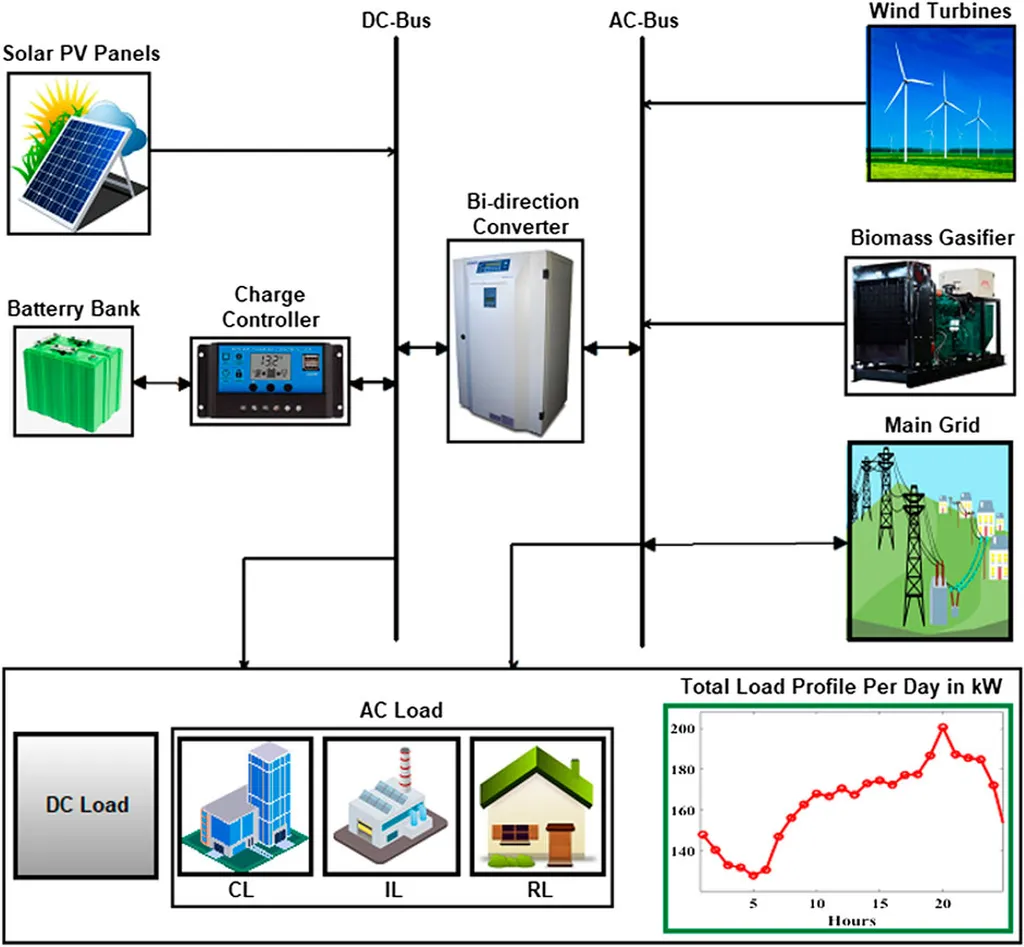In the rapidly evolving energy sector, the integration of distributed generation sources like solar and wind power is transforming the way electricity is produced and managed. A recent study published in the journal *Control and Automation* (*Kongzhi Yu Xinxi Jishu*) sheds light on the challenges and opportunities presented by these decentralized energy systems. Led by LI Zhiyong, the research focuses on the power flow dynamics within micro-grids, offering insights that could significantly impact the future of energy distribution.
The study centers on a micro-grid equipped with distributed photovoltaic and wind power simulation units. By establishing detailed models of distributed generation and network configurations, the researchers employed the Newton-Raphson power flow algorithm to simulate and analyze the system’s behavior. The results were impressive, with the error between measured and theoretical data falling below 3%, demonstrating the accuracy and reliability of their approach.
One of the key findings of the study is the impact of distributed generation on power flow and node voltage. As LI Zhiyong explains, “The access of a large number of distributed sources or changes in their operation status can cause significant fluctuations in power flow and node voltage, affecting the transient response features of voltage drop.” This insight is crucial for energy providers and grid operators, as it highlights the need for advanced monitoring and control systems to maintain grid stability.
The research also delved into the regulation of output power from controllable generation units, analyzing voltage oscillation and low-voltage ride-through capabilities under simulated grid-voltage drop conditions. The test results were promising, indicating that the platform can serve as a semi-physical simulation basis for further research on power flow in distributed generation systems.
The implications of this research are far-reaching for the energy sector. As distributed generation continues to grow, understanding and managing power flow dynamics will be essential for ensuring grid reliability and efficiency. The findings could pave the way for more robust and adaptive energy management systems, ultimately benefiting both energy providers and consumers.
LI Zhiyong’s work underscores the importance of innovative research in addressing the complexities of modern energy systems. As the energy sector continues to evolve, such studies will be instrumental in shaping the future of power distribution and management. The research published in *Control and Automation* (*Kongzhi Yu Xinxi Jishu*) not only advances our understanding of distributed generation but also sets the stage for future developments in the field.

